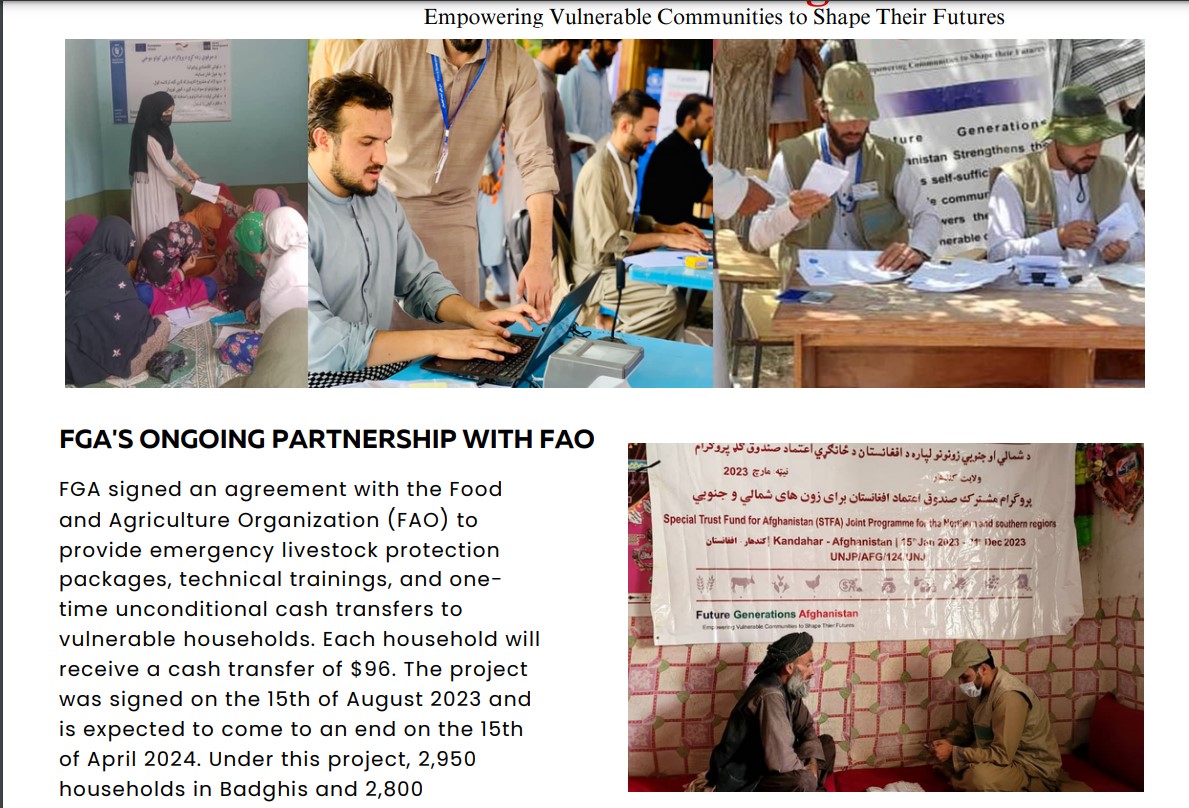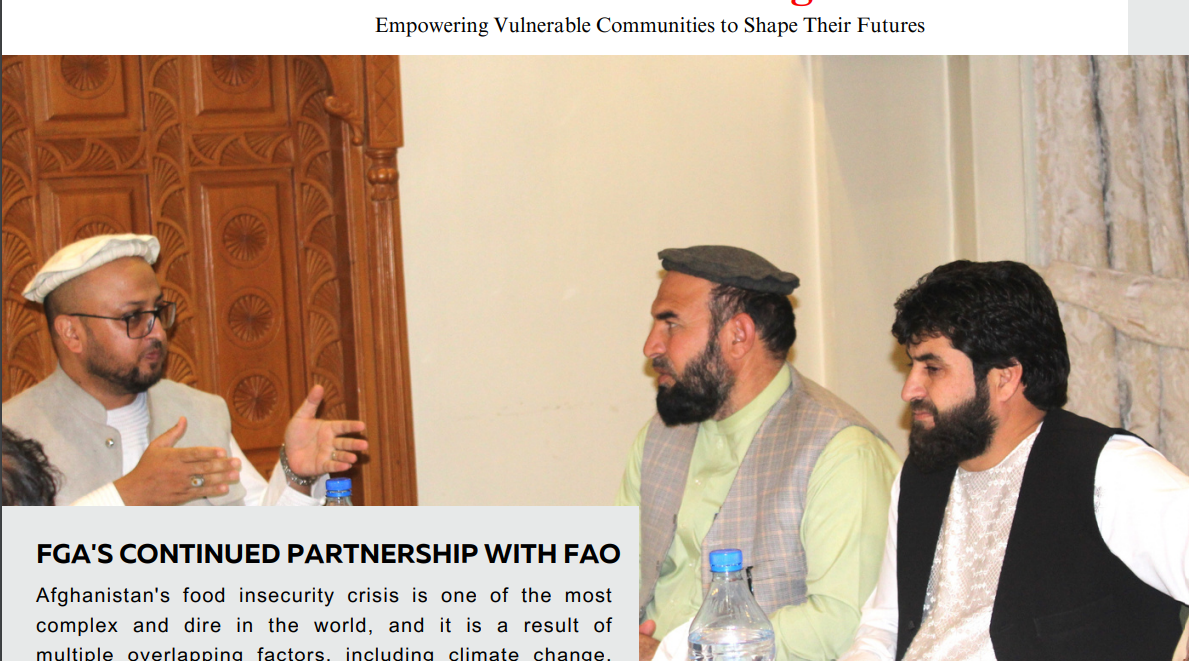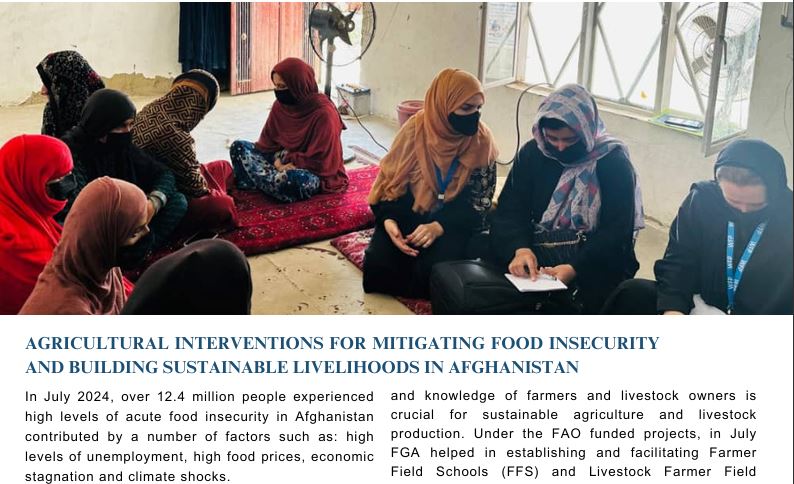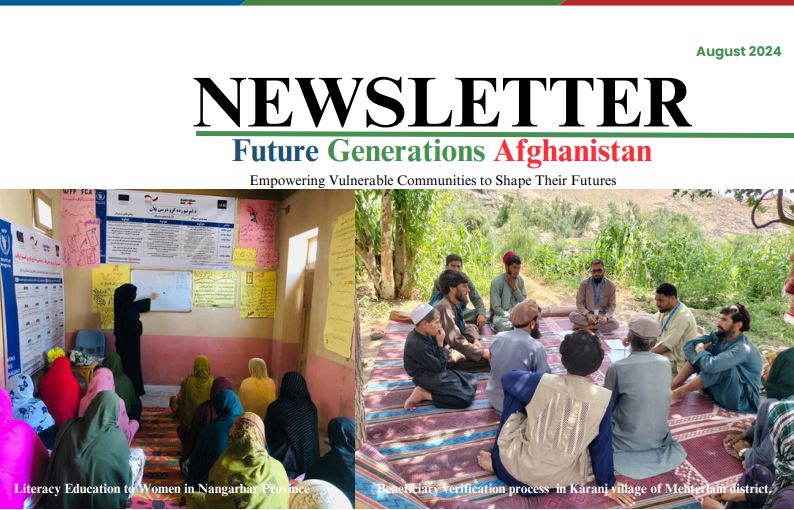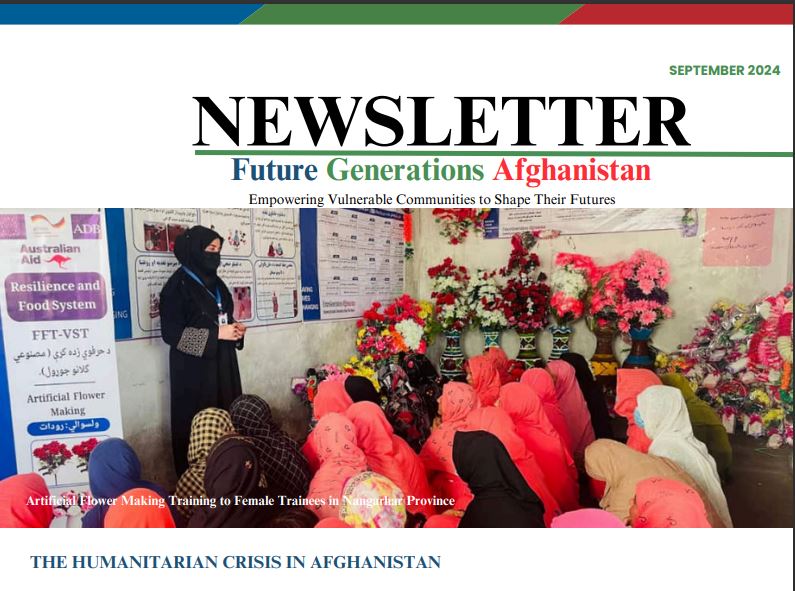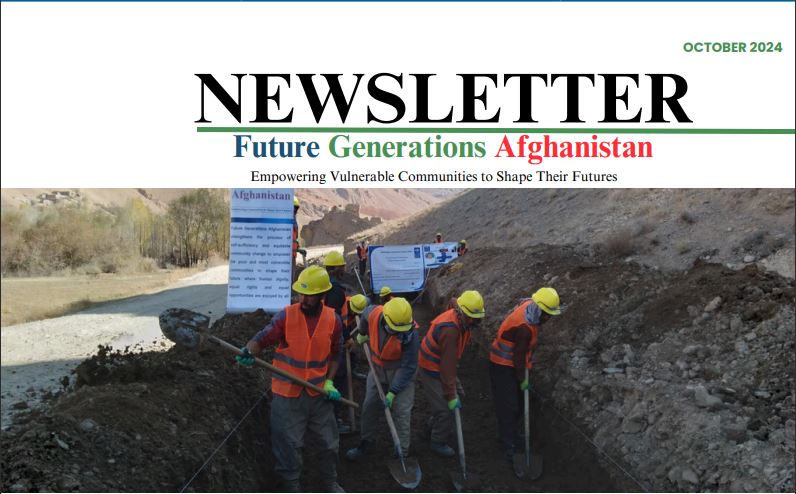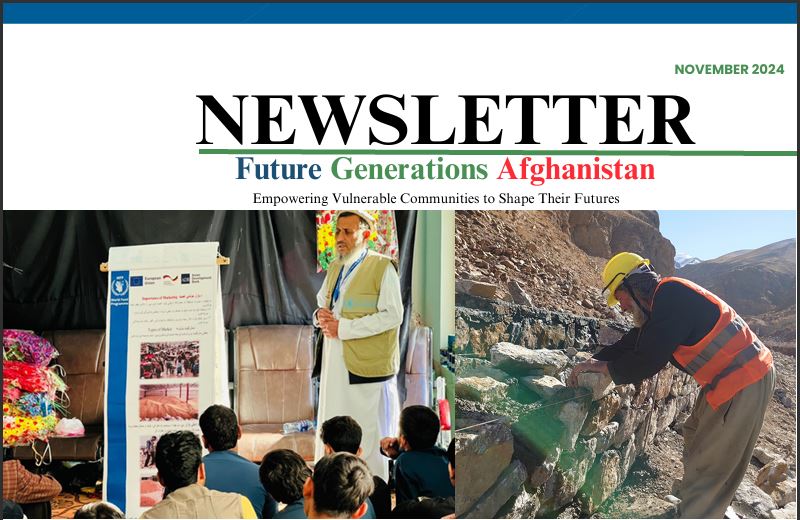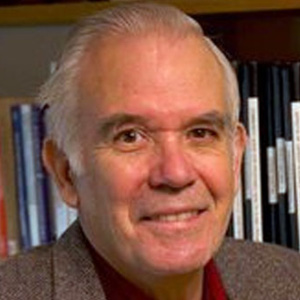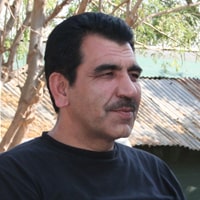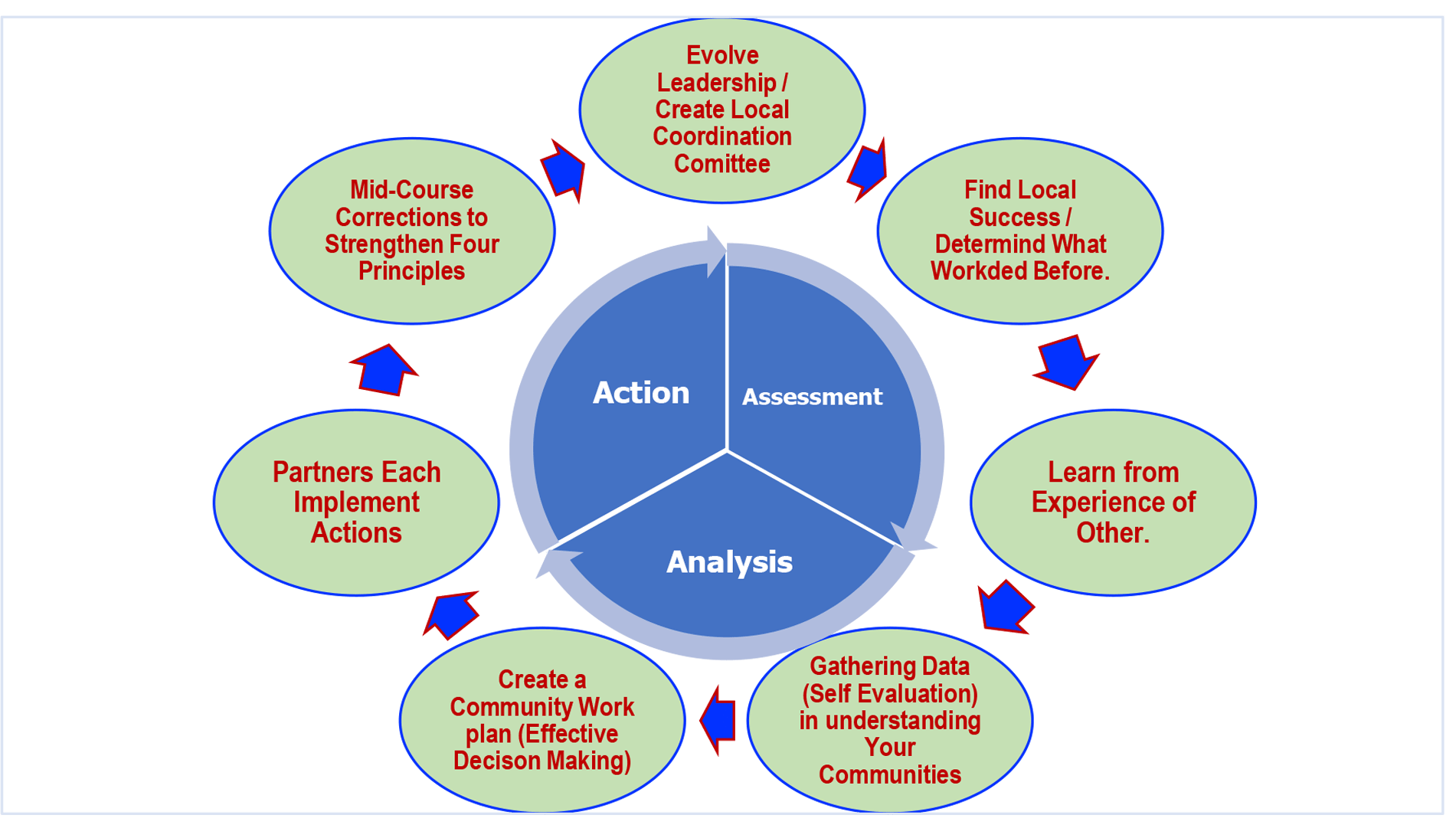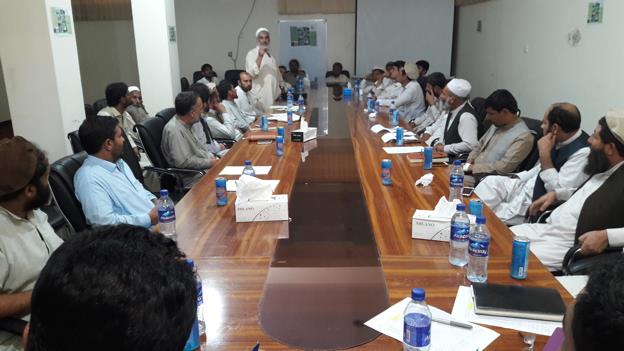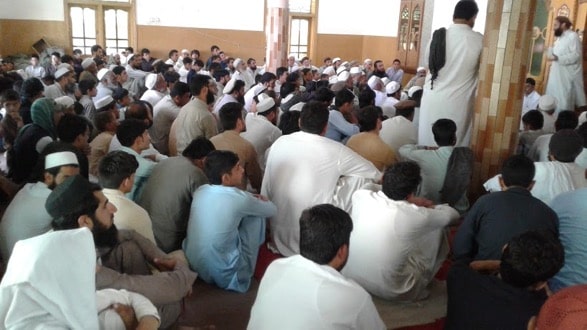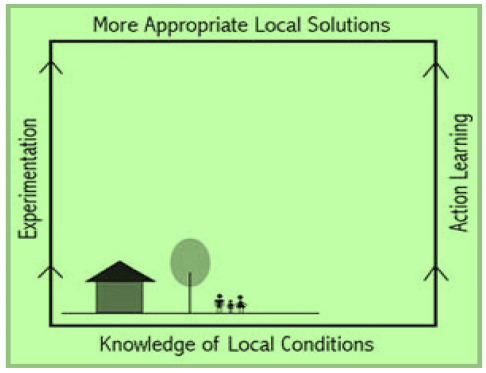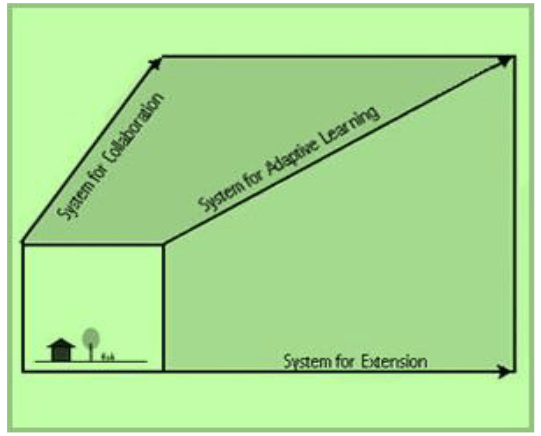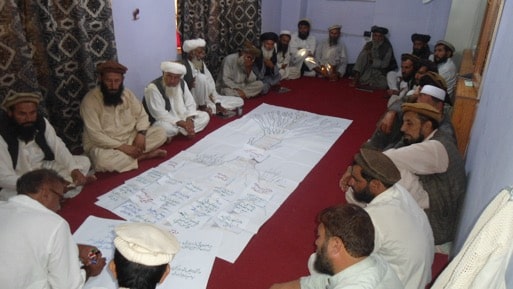
Monthly NewsLetters
Global Network
Future Generations Afghanistan is an autonomous and self financed member of the Future Generations Global Family.
Future Generations Global Network (Future.Org) functions in countries as diverse as China, India, West Virginia, Haiti, and Afghanistan. From a UNICEF initiative, Future Generations emerged in 1992 as a charitable non-government and nonprofit organization for the purpose of learning from and building upon the world’s most successful examples of community empowerment and social change.
The family of organizations: Future Generations Afghanistan, Future Generations Arunachal, Future Generations China, Future Generations Haiti, and Future Generations University share and implement the common methodology of SEED-SCALE.
The accredited University (Future.Edu) offers a two-year applied Master’s Degree in Community Development and Empowerment to promote research, learning, and action toward inclusive and sustainable community change worldwide.
Future Generations facilitates connections and support for its global network partners to grow and share knowledge and practice that empower communities for equitable and sustainable change. It is complemented by the Future Generations Graduate School, incorporated in 2006 in the State of West Virginia with authorization to provide a Master's Degree in Applied Community Development.
In 2016, the Future Generations Graduate School was promoted to Future Generation University, and the Future Generations became a center for research and practice arm of social change within Future Generations University. At present, Future Generations is a global knowledge network of practitioners of social change and a center of research and practice collaborating with Future Generations University. The core of Future Generations work is a process that communities and governments can use to shape their future.
Institutational Summary
The Future Generations Afghanistan (FGA) is a nonprofit non- governmental organization organized under the NGOs laws of the Islamic Republic Government of Afghanistan to mobilizes communities in most difficult regions to find enduring solution for their most pressing needs. It is partnering with Future Generations Global Network (www.future.org) and Future Generations University (www.future.edu). The global mission is “Future Generations promotes research, learning, and action toward inclusive and sustainable community change worldwide”.
Key Information
Member & Partner With:
- National Level:
- Agency Coordinating Body for Afghan Relief and Development (ACBAR)
- National Technical Committee for Small Grant Program of Global Environmental Facilities (GEF/SGP)
- Afghan Livelihood Network (ALN)
- Afghanistan Natural Resource Management Network (ANRMN)
- Afghanistan Humanitarian Country Team, OCHA
- Regional and Global Level:
- Climate Action Network South Asia (CANSA)
- Future Generations Global Network
- Future Generations University
FGA’s Governance Policies:
- Security Policy
- Procurement Manual
- FGA Access Strategy
- Human Resource Policy
- Anti-Corruption Policy
- Program Management Manual
- Program Monitoring Manual
- Program Evaluation Manual
- Environmental Policy (in progress)
- Administration Policy and Procedure
- Accounting and Financial procedure and Policy
Activities:
- Local governance and Peace Building, in partnership with World Bank/IDLG and USIP
- Food Security and Agriculture, in partnership with FAO and WFP
- Humanitarian Assistance in partnership with FAO and WFP
- Environmental Conservation, in partnership with NEPA
- Women and Youth’s Empowerment; in partnership with World Bank/IDLG
- Action Research for Knowledge Development, in partnership with all above donors
Main Office:
Sub-offices
- Nangarhar (nangarhar@future.edu)
- Laghman (laghman@future.edu)
- Kunar (kunar@future.edu)
- Nuristan (nuristan@future.edu)
- Nimroz (nimroz@future.edu)
- Kandahar (kandahar@future.edu)
- Herat (herat@future.edu)
- Logar (logar@future.edu)
- Wardak (wardak@future.edu)
- Badghis(badghis@future.edu)
- Bamyan()
Background, Mission
Future Generations
Future Generations is an International NGOs working in countries as diverse as China, India, Peru, West Virginia, Haiti and Afghanistan. It is also an accredited University offers a two-year applied Master’s Degree in Community Development and Empowerment. The Future Generations emerged in 1992 as a charitable non-government and nonprofit organization for the purpose of learning from, and building upon the world’s most successful examples of community empowerment and social change. It is complemented by the Future Generations Graduate School, incorporated in 2006 in the State of West Virginia with authorization to provide a Master's Degree in Applied Community Development. In year 2016, the Future Generations Graduate School is promoted to Future Generation University and the Future Generations became a center for research and practice of social change within Future Generations University. At Present the Future Generations is a global knowledge network of practitioners of social change and a center of research and practice within Future Generations University. Members are organizations and individuals who link together to evolve global practice for sustainable, effective, equitable impact. The Center encourages life-long learning by providing educational resources, grant support, and strengthening of collaborative working relationships among its network of members. In return, the Future Generations University derives inspiration for curriculum enhancement through the innovative community-based accomplishments and research activities of its alumni and global partners. The core of Future Generations work is a process that communities and government can use to shape their future.
The Future Generations started its operations in Afghanistan in May 2002, and registered an INGO with the Ministry of Economy of the Islamic Republic of Afghanistan in 20 October 2005. The Future Generations Afghanistan (FGA) country office is located in Kabul with a regional office in Nangarhar province, rendering development and humanitarian operations in eastern provinces (Nangarhar, Laghman, Kunar and Nuristan). FGA has successfully partnered with Future Generations in India, China and Peru in the design of training and compiling of lessons-learned from community-managed health care, empowerment of women and marginalized groups and community-based development programs. FGA has also collaborated on a number of community-based development initiatives with the Afghan Ministries of Rural Rehabilitation and Development, Ministry of Public Health, Ministry of Education, Ministry of Refugees and Returnees, National Environmental Protection Agency and Independent Directorate of Local Governance as well as with UN agencies (WFP, UNDP, OCHA-AHF), international organizations/diplomatic mission (JICA, USAID, CIDA, French and USA Embassies) in Afghanistan and academia (Johns Hopkins University and Future Generations University).
The FGA’s early programs began with mobilizing and empowering communities to form locally driven initiatives in literacy, conservation, local governance, and healthcare. These initial programs were developed around the concepts of SEED-SCALE in Bamyan and Ghazni, extended to Daikundi provinces in central region and expanded to Zabul, Urozgan in South in 2005, and to Baghlan, Panjishir, Logar and to Nangarhar, Kunar and Laghman in Eastern Afghanistan 2007. Presently, FGA rendering development program including the government national programs; and involve in relief and humanitarians in food security and agriculture, returnees and IDPs protection and reintegration in eastern provinces.
Vission:
Strives for a just and lasting change in which the poor and vulnerable persons or communities have access to opportunities.
Mission Statement:
Future Generations Afghanistan strengthens the process of self-sufficiency and equitable community change to empowers the poor and most vulnerable communities to shape their future; where human dignity, equal rights and equal opportunities are enjoyed by all
Core Values:
- Promote separated groups beliefs to reach across differences and shape a shared future.
- Respect humanitarian principles (humanity, impartiality, neutrality and Independents) and apply them in the entire organization operations.
- Gives priority to the interests of women who have a particularly strong interest in the wellbeing of their families, children, and community.
- Emphasizes equity, empowerment, and self-confidence especially among vulnerable and marginalized members of the community.
- promotes partnership among communities, external actors and the government in a way that strengthens and enables communities to address their priorities with local skills and resources.
Policy Goals:
- To become a learning Organization so that FGA will :
- Prioritize learning as an objective, drawing out areas of both success and failure
- Implement projects in a way to generate new knowledge and share this knowledge among Future Generations Network
- Integrates new knowledge and learning into program strategy and policy and new program design
- To become a Specialist NGO :
- Empowerment through SEED-SCALE approach in development and humanitarian programs will form the core of FGA’s specialisation. These should be developed so that FGA can offer both beneficiaries and donors a range of specialist skills in this area.
- To become a specialist NGO, FGA therefore has to develop record and disseminate specialist skills and knowledge
- To be A thriving NGO so that FGA needs to have :
- A significant body of work that includes new and innovative programs
- Income flows that keep pace with program development and expansion.
- Identify new project areas and potential donors to fund FGA programs and innovations.
- A well- trained, qualified and motivated staff
- To ensure a long-term future for FGA: FGA needs to be diverse enough to mitigate a range of
potential shocks :
- Political / Security Shocks: FGA’s program needs to be diversify its project areas to ensure that political /security problems do not impact on the program’s critical mass.
- Legal and Personal Risks: FGA needs to ensure that it is properly insured for all identifiable risks and that staff are properly informed, equipped and trained to deal with risks that they may encounter working for FGA.
- Funding Risks: FGA needs to continue to diversify its sources of funding..
Governance Structure
FGA Structure
The FGA head quarter is in Kabul with its sub-offices in Provinces. The Kabul office covers FGA operations in Central – East & West regions the FGA organizational Structure encompassing of divisions at the central and provincial levels: Center Level: The Kabul office is the headquarter of the country office. It has divisions at the policy level, program level and supporting division. The country director and Managing Directors are the key policy level employees. The Managing Director Operation monitor and coordinate the tasks of Admin HR Procurement & IT Departments. The Managing Director East responsible for provincial offices East Managers activities and Managing Director Program responsible for overall program Management, implementation and coordination in Central, South East Regions, the monitoring and evaluation, and the capacity building managers are working with program development manager for project/program designing, monitoring and evaluation. Administration and Finance Division is the supporting office of FGA. The purpose of this division is to provide administrative and finance supports and services to the FGA management in Kabul and provinces by assists in developing / implementing administrative and finance rules, regulations and guidelines. This division helps to grease the movement of maximum efficiency to all other divisions and thereby the FGA as a whole. A. Regional Level: The regional level structure incorporating two divisions (a) Program development section (Regional Manager); and (b) Humanitarian Program section. The staff at regional level are operational level employees involve in project management and implementation. The Development Program Section comprising of key staff in social mobilization, engineering, management information system, capacity building, women empowerment and project monitoring. This section will be involving in similar projects / programs in other provinces. The Humanitarian Program Sections has been supporting the returnees, IDP and their receiving host communities through implementation of food and cash based transfer program, Food for Asset and food for work programs in Nangarhar, Kunar and Laghman provinces. This unit will be working in similar program and CHF funded program in eastern regions and other provinces. The key staff of Humanitarian section are relief provincial manager, assessment and verification officers, SCOPE Officers, monitors, data entry and food distribution staff. The regional office manages by Provincial / Project managers who are responsible to report to Managing Director East & Program. For more detail, please refer to FGA organogram (2023-2025). Organizational Chart Country Director is responsible for overall management of FGA. He is reporting to the President of Future Generations and Board of Directors in the West Virginia. The Managing Directors are responsible to manage and coordinate their works of their divisions, supervise their staff in Kabul and provinces. The operation staff is work in the provinces responsible for project management and represent FGA at the regional levels. The organizational chart (organogram) of FGA is illustrated below.
Future Generations Afghanistan Organogram (2025)

Staff Hierarchy
| Women Empowerment | Agriculture | Food Distribution | Cash Distribution | School Feeding |
|---|---|---|---|---|
| Project Manager | Project Team leader | Project Manager | Project Manager | Project Manager |
| Event Organizer | Site Engineers | Assisment Team | Assisment Team | Assisment Team |
| M&E Officers | MIS/ Reporting officer | Monitoring Team | Monitoring Team | Monitoring Team |
| Social Organizers | Extension Workers | Scope | Scope | Scope |
| Supporting Staff | Store Keepers | Social Organizers | Social Organizers | Social Organizers |
| Supporting Staff | Store Keepers | Supporting staff | Store Keepers | |
| Supporting staff | Supporting staff |
No of FGA’s Staff in 2023
| # | Duty Stations | Number | Remarks |
|---|---|---|---|
| 1 | Kabul Office | 18 | |
| 2 | Wardak Office | 66 | |
| 3 | Logar Office | 90 | |
| 4 | Nimruz Office | 108 | |
| 5 | Badghis Office | 12 | |
| 6 | Herat Office | 214 | |
| 7 | Nuristan Office | 50 | |
| 8 | Kunar Office | 66 | |
| 9 | Nangarhar Office | 324 | |
| 10 | Laghman Office | 66 | |
| 11 | Kandahar Office | 27 | |
| Total Staff 2023 | 1041 |
Board Of Directors
Chairman
Daniel first traveled across Afghanistan in 1961. With visits in every decade since (now over 30 visits) he has admired the dedication of the Afghan people as they engage their challenges. Across the diversity of the cultures, politics, and the geographies, he continues to help the Afghan peoples as a professor learn. From his current position as President of Future Generations University, he is proud of the dedication now by the university's 16 Afghan alumni to inclusive futures for all Afghan families, men, women, children
Secretary
Mr. Shirzai is specialist in rural development and applied community change and conservation with over 30 years of experience in program design, NGOs management
and leadership in Afghanistan and abroad. He completed a master degree in rural development in Nepal and another master degree program in
Applied community change and conservation in U.S.A.
During 1980s he was associate professor in Kabul University, and from 1990 – 2006 he was working in various NGOs and from 2007 to 2010 he worked as strategic planning
advisor in MRRD and later as Head of Afghanistan Institute for Rural Development. Since 2011, he has been working as Country Director
of Future Generations Afghanistan. Presently, he is a Ph.D. Candidates at the School of Social and Behavioral Science of Erasmus
University – Rotterdam.
Treasurer
Peter brings a 30-year history in development economics as a member of the Board of Directors of
Future Generations Afghanistan. He grew up in India and Nepal and visited Afghanistan in the early
1970s.Then, after receiving dual Master's degrees from Cornell University, Peter grew a multi-sector
career in the African Development Bank. His work across Africa focused on promoting private sector development
to strengthen the economies of numerous countries. His home is in Tunisia.
Board Member
Dr. Hilja R. Ruegg is an Associate Professor of Clinical Psychiatry and Family Medicine at the
University of Cincinnati College of Medicine. She is dually board-certified in Psychiatry and
Family Medicine and has served as the Program Director of the Combined Family Medicine–Psychiatry
Residency Program since 2016. In addition to her academic leadership, Dr. Ruegg directs UC Health’s
Collaborative Care Services and is the Lead Physician for the Medication-Assisted Treatment (MAT)
program serving individuals experiencing homelessness.
Her work is rooted in integrating behavioral health into primary care, with a strong focus on treating underserved populations. Dr. Ruegg's clinical and research interests span consult-liaison psychiatry, cross-cultural mental health, addiction medicine, and the management of delirium. She brings a rich international perspective to her practice, having previously worked in women’s health and education programs in Afghanistan and at a Federally Qualified Health Center in Massachusetts. Her interdisciplinary approach and dedication to integrated care make her a leading figure in medical education and community-based mental health services.
Governance Policies
FGA’s Governance Policies
-
Administration Policy and Procedure
This policy has documented the principles, policies and procedure governing FGA’s administrative framework and operating practices. It provides employees with procedural instructions, illustrates the scope of the responsibility and authorities of staff and program divisions and standardizes all organizational rules and procedures in order to create a system of internal control as well as improve transparency and accountability. The above Policy has been revised and updated for 2024.
-
Human Resource Policy
The document outlines the general principles & standard of Human Resource process that apply in FGA offices. It is intended for program managers to ensure that minimum personnel requirements are met, and for their staff, to inform them in general of theirs working entitlements. The purpose is to ensure that all staff members receive fair & equitable treatment while working in FGA. The above Policy has been revised and updated for 2024.
-
Finance Policy and Procedure Policy
This policy provides a standardized set of concepts, principles & procedure of FGA financial system to ensure consistent and effective operations throughout the FGA offices in Afghanistan. It standardizes all organizational rules and procedures in order to create a system of internal controls, improve transparency and accountability and help the FGA to safeguard its resources. As FGA grows in size and complexity, program managers and field staff need to be clear about the extent of their financial responsibilities: the distinction between procedures which are mandatory and those with guidelines: and the way in which their work interacts with the finance division in the country office. The above Policy has been revised and updated for 2024.
-
Security Measurement Policy
This policy provides a framework to FGA management at different levels to identify and reduce the risk associated with staff, offices, assets and programs’ and to formalize the analysis of the security risks on the basis of the underlying threats and potential future threats rather than on the basis of historical incidents. The policy also provides guidance to all FGA staff members and visitors on security issues. This document contains guidelines for the safety and security of FGA’s employees, office, vehicles and property. This guideline can reduce risks, but does not eliminate them. The purpose of this guideline is to minimize security risks, and vulnerability of FGA staff members working, traveling, and living in insecure environments. The above Policy has been revised and updated for 2024.
-
Anti-Corruption Policy
The Anti-Corruption Policy aims to communicate FGA policy regarding the deterrence and investigation of suspected misconduct and dishonesty by employees and others, and to provide specific instructions regarding appropriate action in case of suspected violations. The policy provides a framework for all employees in the prevention, detection, reporting and management of fraud and corruption in the FGA workplace in Kabul and provinces. The policy applies to individuals who are engaged in providing services to the FGA or receiving services from the FGA, its partners, counterparts, contractors etc. The above Policy has been revised and updated for 2024.
-
Program Management Manual
The program management manual helps FGA employees and stakeholders to understand Future Generations approach to self-sufficiency and social change. The manual describes self-sufficiency and social change diagram of FGA, the FGA operational strategy (SEED-SCALE), its four principles, seven tasks and five evaluation criteria. The manual also explains the dimension of SEED-SCALE approach and the scale up strategies. The positive impacts of Future Generations projects and organization operational strategy are mentioned in the last section. The above Policy has been revised and updated for 2024.
-
Program Monitoring Manual
The program monitoring manual is prepared in seven chapters and aims to help FGA employees with monitoring the different aspects of the projects. Chapter-I explains the definition and the basic of monitoring and evaluation together with result chain. Chapter-II is about the developing the qualitative and quantitative indicators for the projects together with the role of baseline information in monitoring and evaluation of the program. Chapter III to V describe the purpose and elements of logical frameworks, and the role of stakeholders. The Chapter-VI is about participatory monitoring and the Chapter-VII is about the monitoring of projects including monitoring objectives and the processing tools. The above Policy has been revised and updated for 2024.
-
Program Monitoring Tools
Future Generations Afghanistan uses the European Commission Monitoring Tools Manual, which is prepared for NGOs. The manual contains the communication tools including how to conduct (a) numerous types of interviews (individual, key informant, focus groups, hold a lesson-learned meeting etc.), (b) different analysis (gender, stakeholder, livelihoods, risk, conflict etc.), (c) several assessment techniques (surveys, participatory etc.). The manual also explains on how to carry out a field visit, or set up a complaints and response mechanism. The above Policy has been revised and updated for 2024.
-
Program Evaluation Manual
Future Generations as learning organization requires to evaluate its program, and regular gather and disseminate new knowledge among Future Generations Global Network including experts of Future Generations University. The program evaluation manual helps FGA managers to design evaluation for donor funded development and humanitarian projects. It will also help the employees in information gathering, analysis and presenting conclusion and recommendations. The manual explains the evaluation reporting template including reporting requirement of AHF funded projects. The above Policy has been revised and updated for 2024.
-
FGA Access Strategy
The FGA Access Strategy is a policy for FGA to render humanitarian assistance in insecure area. The Access Strategy aims to provide FGA and their partners with the flexibility to experiment with alternative forms of implementation that are tailored to the local context including provision of alternative approaches for inclusion of women as members and decision makers. The policy defines measures to mitigate fiduciary risk inherent to operating in a volatile insecure environment and also establish a framework in which FGA and its donors, and communities can evaluate the successes and failures of alternative implementation approaches and share lessons learned. The access strategy establishes further decentralized mechanisms within the humanitarian program structure that allow local decision-making, timely sub-project identification, rapid delivery of humanitarian assistance and development project implementation as per the outline specification mentioned in project document. The above Policy has been revised and updated for 2024.
-
Procurement Manual
FGA Office Procurement policies and procedures. Compliance with this manual is effective January 1st , 2023. This Procurement Procedures Manual is applicable for all FGA Offices inside Afghanistan. This manual will change as country office programs and need base, and so it will be reviewed continually through each year. As a minimum, this manual shall be reviewed at least semi-annually for the first year and then annually the year following to ensure it is still fit for purpose. Purpose of the Procurement Manual The purpose of this field office procurement manual is to a) provide standardized clarification on FGA procurement policies and procedures b) manage risk c) reinforce internal controls d) provide material for employee training e) drive improvements and f) reduce waste, fraud and abuse. The FGA Procurement Procedures Manual should be read in conjunction with FGA HQ Standard Operating Procedures (SOP). The Central office Procurement Team ensure that the requirements in this manual align with other distributed SOPs However, should there be an erroneous difference between what you find in this manual and what you find outside of this manual The above Policy has been revised and updated for 2024.
Citizens’ Charter National Priority Program / Citizens’ Charter Afghanistan Program (CCNPP /CCAP)
Approach To Social Change
FGA Approach to Social Change
FGA Approach to Self-sufficiency and Social Change
FG has a history of self-reliance and community empowerment that is based on a participatory and inclusive decision-making processes; gender equality, transparency and accountability and sustainability. It has used its proven approach (SEED-SCALE) in its target areas in Afghanistan. SEED is an acronym for Systems of Self Evaluation for Effective Decision-making. The focus of activities from the beginning is to facilitate sustainable community based, community owned socio-economic and systemic change in resource-poor settings. Rapid expansion occurs with systematic promotion of training and support with ideas but with minimum outside funding to build self-reliance, community capacity, changes in behavior and social norms and community empowerment. The SCALE is an acronym for Systems for Communities to Adapt, Learn and Expand in rapid extension from successful local sites, then transforming the best successes into Learning Centers, which extend to new regions to form a network of Learning Centers for national coverage. The SEED-SCALE is the FGA Framework for action that allows communities to analyse their conditions in relation to national dynamics, take appropriate actions based on their priorities and resources and lasting change.
FGA specializes in a partnership-based approach that strengthens linkages and skills among communities (bottom-up human energy), government (top-down enabling policies and financing), and non-governmental organizations (outside-in technical support) to address the needs of people living on the margins of society and protect fragile ecosystems. The core of FGA work is a system that communities and governments can use to shape their futures. In its entire project portfolio, FGA stresses the importance for self-reliance and empowerment of local communities. The institution’s intention is to create the attitudinal and behavior changes that will improve the lives and livelihoods of community people. In our approach, efforts to instill in all activities a “You can do it” set of convictions builds capacity in our entire target areas.
It is common these days to speak of methodologies of self-reliance and empowerment – almost all organizations in the world claim to do or at least promote these. But most organizations attempt self-reliance and empowerment by giving services. Self-reliance is not giving to, but rather it is building out from people. Future Generations has an exemplary world-encircling evidence base of achieving both self-reliance and empowerment. Distinctive about the Future Generations approach is that it is based on scholarship begun with funding from UNICEF in 1992, which continues today. The methodology that has been developed is known as SEED-SCALE that the process was first presented in two monographs at the 1995 United Nations Summit in Copenhagen and more recently articulated in the book Just and Lasting Change: When Communities Own Their Futures. It continues to be refined through ongoing research, collaboration, and field application. FGA implements SEED-SCALE theory of change that offers a process for each community to develop its own services and enhance its efficacy and control. The approach uses resources all communities have, and builds from actions that have already started. The SEED-SCALE process activates the energy and resources of communities (SEED) and expands successes across large regions through government partnership (SCALE). SEED-SCALE is a framework to understand how to enable community empowerment as well as methodology (complete with guiding principles, action steps, and evaluation criteria) that can be taught to and used by communities functioning at the most basic level.
The essence of SEED-SCALE approach is the recognition that community members are the primary
authors and
actors for addressing their socio-economic problems, and awakening them to a possibility for
a better
life and self-reliant actions. FGA will ensure its humanitarian and development programs
with
communities are:
Targeted the most vulnerable – for their Self-sufficiency that is the ability to provide
everything one
needs in sufficient quantities to save life and livelihoods.
Dynamically Transformative - community members uncover their own definition of human
well-being and the
direction they themselves define as most desirable to ensure it. This shifthelps them to
move away from
dependencies.
Empowering - communities through participatory planning, implementation, and management of
local
development activities.
Improving – local leadership will be strengthening to become more accountable and inclusive.
Connected – although arising as local initiatives, strong linkages and partnership are
forged with
regional and national development actions.
Iterative – so community initiated success leads to another and then to another until
community networks
are established district wide, regionally and nationally.
In all its humanitarian and development works with communities, FGA will not present itself
as a source
of funding, but as a facilitating partner and capacity builder. The SEED-SCALE approach has
enabled the
FGA to focus communities on how they themselves can channel their social and human capitals
towards
overcoming socio-economic problems rather than always looking for outside sources of support
and
funding. This means the work of FGA promotes self-sufficiency in the emergency or
humanitarian situation
and moves toward self-reliance and empowerment.
| Distinguishing Features of SEED-SCALE | ||
|---|---|---|
| SEED-SCALE | Traditional Development | |
| Key Resource | Human Energy | Financing |
| Planning Mindset | Evolutionary Growth | Construction Engineering |
| Planning Process | Agenda - Plan - Budget | Budget - Agenda - Plan |
| Who Does the Work | Three-way Partnership | Professionals |
| Implementation Structure | Local Institutions | Consultants/Project Units |
| Ultimate Accountability | Community | Donor |
| Approach | Build on Successes | Fix Problems / Answer Needs |
| Criteria for Decisions | Evidence | Power, Opinions b Habits |
| Major Desired Outcome | Behavior Change | Measurable Results |
| Criteria for Evaluation | Strengthening 4 Principles | Budget Compliance |
| Learning Mode | Iterative, Experimental | Get it Right the First Time |
| Management Mode | Mentoring | Control |
| Commitment Horizon | Depends on Utility of Partnership | Depends on Donor's Budget Cycle |
Seven Tasks
The Cycle of Seven Tasks to Craft the Future
Crops grow through a cycle that is followed the world around: prepare the soil, plant the field, irrigate for germination, nurture its production, protect it from invasion, and then harvest. Social change apparently also follows a cycle. We first found this cyclical approach to be globally applicable in UNICEF, with the triple–A process of assessment, analysis, and action. The three larger steps of triple-A became more specific as the global SEED-SCALE task forces crafted the seven tasks. Twenty years of field trials for the seven –task cycle have shown it to work across cultures and economic circumstances, a universal process to evolve site- specific solutions for building capacity (assessment), choosing (analysis), and getting the desired results (action).
-
Building Capacity: Three People –Nurturing Tasks
-
Evolve leadership. Leadership is likely to be more effective if it is not limited to one person. A coordinating committee gathers the community together to plan action using local data, get cooperation from both long- standing and recent faction, and points to changed behaviors. Once communities feel they are reaching commonality, action strengthens. The initial committee is reconstituted as people rotate off and others fill their places. So, the first task is to create a local coordinating committee to supervise the other six tasks.
-
Determine what has worked already. The community s desired future will seem more achievable if it grows out of past successes. Action draws on that experience and confidence. People are continuing processes they know and, being familiar with these process, have the skills to start improving. A second task is to find local successes.
-
Learn from other; don’t try to originate action alone. Encourage people to visit other projects and learn from them. When people see an idea and learn what is involved in it, they are more likely to try and experiment with it. Onsite visits are one way to gain knowledge, but with the Internet, cross-community learning is easier, faster, and less expensive. A third task is to learn from the experiences of others.
-
-
Choosing Direction: Two Evidence –Based Tasks
Every community has the opportunity to decide its direction (and as doing so at some level already). Growth occurs by moving from what the community has (SEED) toward what is desired (SCALE). This requires evidence, which, as decisions are being made, shapes them to be more effective. AS communities review their direction (self-evaluation), they identify successes and challenges and produce a functional analysis from which jobs are assigned to everyone (effective decision – making). These are evidence- based decisions, specific to that community.
-
Self–evaluation involves cyclical assessment of households and socio-environmental conditions, using key indicators to grow increasingly complex understandings over time. Such assessments are most accurate with a diversity of inputs from women, students, men’s groups, and experts. Communities can conduct independent assessments, but in trying to act alone, they miss using techniques that experts can assist with, such as existing evidence bases a community may not about, and key indicators to survey. A fourth task is use self– evaluation in understanding your community.
-
Effective decision-making analyzes gathered evidence to create work plans that are doable. There are three steps in this: causal analysis, functional analysis, and role reallocation. In making work plans, the objective is to involve all partners and to balance needs against the uses of time, finances, government services, and natural resources. The outcome produces tasks that people will perform in the coming year. Plans have a negative value if the work is not done; their proposals must be doable.
The fifth task is to create a community work plan.
This is a public document – a simple chart assigning roles that target the achievement the community aspires to. There should be roles for all: community, exports, and the government. A good work plan can be read at a glance, showing what each participant must do, and when to do it. Some communities may want a one –year work plan, but our growing experience with SEED-SCALE indicates that plans are more helpful when done quarterly or even bimonthly. Consider posting the plan in public place, such as on the side of a building or a sign coming into town. Select a place that prompts discussion and remind those who have not done their jobs that they need to act. This document is the community s future, and an inventory of past work plans outlines the community s history of social change.
-
-
Getting the Desired Results: Two Tasks to Do and Re-do
Actions always elicit a choice between paid- for and volunteer work.
Each type of actor has value. Paid –for actions require a source of money, and money is a scarce resource, so this choice may limit the work that can be accomplished. Thus volunteers are helpful to all community plans. The major advantage of volunteers, however, is not free labor, but the fact that these people are acting from self-interest, where the work itself viewed as something to improve their live.-
As people agree on a priority, action should start. If a group gives itself a name, this builds pride and justifies their actions. The term we use is action groups, but many other names are possible for groups of people who are acting for the community instead of acting for themselves. Failures will be frequent- getting the action right is not as important as getting the action going, discovering flaws, and then making it better.
Thus a sixth task is to act according to the work plan.
As communities move forward, they must also look sideways and backward. Because communities thrive on anecdotes and not on evidence, rumors and stories will abound. A countervailing forum of formal discussions, based on evidence, is one way of stemming their harm. This 360- degree perspective will guide adjustments in goals, finances, training, and oversight to ensure inclusiveness and sustainability. Discussions stemming from multiple perceptions are recursive –going forward, stepping back, looking around- and create a momentum that grows into actions.
The key is to keep moving. A community going forward with its successes calls in outsiders at the same time as it gathers up insiders. Patience will be needed to keep time –driven outsiders (who report to other outsiders with other priorities) from taking over. One exciting feature of SEED-SCALE is when communities that are investing their resources experience this energy draws in others. The community feels it is part of the bigger world, a very different feeling from being victimized. Those who labored in the early stages, however, will often think that the new-comers are taking advantage of their earlier work. This is an unfortunate dynamic, and its negative consequences should never be underestimated. -
Effective midcourse corrections make the next cycle of community activity more affective.
A good midcourse correction may (but need not) adjust what is being done to reach the work plan target, which is the usual expectation. In SEED-SCALE, midcourse corrections always shift actions toward strengthening the four principles. Community commitment grows and keeps going forward when principles are strengthened. Thus the cycle of seven tasks come to its final task, to make midcourse corrections.
The sequence in which the tasks are accomplished does not matter, and this sequence should be adjusted for differing situations (Humanitarian and or Development). What is important is that all seven tasks be done, and doing an excellent job of any one tasks (or all of them) is not a priority. Doing them all again, and making the cycle better the next time, is what counts.
-
| The Seven Tasks: Their Objectives and Process | ||
|---|---|---|
| # | Task Objective | Tasks / How? |
| 1 | Develop Leadership | Create or re-recreate a coordinating committee and use that to mobilize both the community and its partners. An individual leader can get caught between factions, while a committee can bring groups together and has the potential to distribute responsibilities |
| 2 | Find a Starting Point & Resources | Identify past successes. Whatever a community has done best in the past will be the most likely base for future success. An existing success within a community is the strongest base for future success. On its own, a community may not see its strengths; experts can help identify these. |
| 3 | Obtain a Relevant Education | Visit other communities to learn about their successes. Find where worked for others people in similar circumstances and adapt these practices. Send community members who will actually perform the tasks on these visits (instead of just the powerful ones), so the workers get trained. |
| 4 | Fit situation-ecology, economy, values | Use self-evaluation. Evaluate the situation objectively – and for that, get evidence (gather data, information and problem specific to each community). Such objective data provides a better basis for action, therefore, use evidence as the base, instead of decisions stemming from opinions, power or who has the money. |
| 5 | Determine direction & partners | Employ effective decision-making. Working from data specific to each community, discussion will identify and clarify actions that can solve problems and build community confidence. Discussing these matters collaboratively, the community probes the sources of problems and explores alternative solutions and prioritize what is attainable. Once community members (in public meetings, guided by the coordinating committee) have agreed on an achievable course of action, it’s time to create a project and or an annual work plan that assigns specific jobs and functions to all. Under emergency or humanitarian situation, most of the activities for this step will be performing by outside – in experts and organization. |
| 6 | Coordinate people, resources & time | Act or Start Popular Project. Involve as many community members as possible. Start projects that will be popular. Action grows when it is successful and addresses priorities. |
| 7 | Keep momentum on track |
Make midcourse corrections. Monitor the momentum of community action, in
order to make necessary midcourse corrections. Identify gaps during the
course of work plan implementation. Corrections should strengthen the
principles – commend success, grow partnerships, refine evidence, nurture
behavior changes – with the larger result that community energy rises.
Strengthening principles is the objective, and it is more important than achieving work plan targets, because community fabric grows stronger through strengthened principles. Under humanitarian situation, improvements will only be short-term when the natural resource base is declining. On-going, multilevel monitoring is critical, with all three partners participating, gathering data, and revising targets to maintain the collective focus on creating more just, sustainable, and community-specific futures. Involvement of objective outsiders can be very important in this phase. |
Four Principles
4 Key Principles
Necessary Conditions for Change
Future Generations researchers and colleagues have been monitoring community-based development and conservation programs worldwide to examine why some programs have succeeded and others have failed. This research concludes that in all cases of success, in which the program has been both sustainable and has gone to scale, four determinants can be found. In all these cases, successful community change resulted from a set of necessary conditions, which the SEED-SCALE process has described as four key principles.
-
Build from Community Success
People’s energy and creativity expand as they realize that they are capable of controlling the challenges in their lives. One success becomes the stepping stone for subsequent successes and generates community confidence and forward momentum.
Building on community successes is not the customary approach to social imgchange. Professionals, government officials (and indeed the communities themselves) typically focus on the problems, and a long list quickly develops: poverty, the bad roads, poor schools, political, ethnic, or religious factions, etc. Focusing on the problems emphasizes the deficiencies of a community instead of its existing strengths and capacity. The consequence is to beat the community down through what amounts to amassing the evidence that the community is incapable of solving its problems. The ensuing solution is for an outsider to step in and solve this litany of problems, creating a cycle of dependency.
Identifying and then building on successes, however, is an approach that focuses on building upon the existing strengths in a community. This is a forward-moving constructive effort that focuses attention on community assets rather than needs. Action is then based on an assessment of what is possible, rather than what “needs” to be done. Costs of development go down when attention turns to building on assets, rather than attempting goals that require massive influxes of resources from outside.
-
Three-way Partnerships
Community energy seldom mobilizes by itself. Communities need imghelp from officials, who can adjust policies and regulations to facilitate cooperation among factions and channel external resources. Communities also need help from experts who can build capacity by training, introduce new ideas, and help monitor change.
Our long-term studies of community development worldwide show that success results when communities work from the bottom up, when officials work from the top down, and when experts work from the outside in. All three roles are needed. When governments create enabling policies, change can accelerate in a cost-efficient way across entire regions. When appropriate experts are involved, development ideas are up-to-date, and fit the local ecology, culture, and economy. When communities are true partners (rather than simply being manipulated by governments or NGOs) then these communities can act more effectively to redefine their futures.
Relationships between these three partners must be flexible, and need continuing adjustment. Many projects start out working well, but then flounder because participants do not understand that their relationships need to evolve. Initially, entrepreneurial leadership is important. In the middle stages, expert-led training, monitoring, and experimentation guide the process, with appropriate midcourse corrections. Later, structured systems will better help communities expand vision and capacity. And to facilitate this phase, officials and experts must shift their roles from control to support of community action.
-
Evidence-based Decision-making
Action is effective when grounded in objective data. Lacking such data, participants will make decisions on the basis of transitory opinions. These tend to be most influenced by whoever talks most convincingly, or whoever holds more power at the moment. Lacking data from local situations, decisions are made on information from more distant situations—which may or may not be relevant. Factions polarize around differing opinions, but with accurate local data, and thoughtful guidance from officials and experts, differing community factions can find an objective common ground for working together.
While the principle of basing decisions on local data makes sense, accomplishing this goal is often compromised. The SEED process readily adjusts to local capacity, creating an easy-to-do technique by which every community each year can gather data relevant to its needs. Data gathering (especially using the key indicators of a SEED survey) is a process that can start simply and develop great sophistication over time.
-
Changes in Community Behavior
People can come together in partnerships; they can agree on objective data; but, to achieve lasting results they must also change behaviors. While changing behavior for the community may start simply by gaining new skills, those in positions of power—community leaders, officials, or experts—face a more challenging requirement, changing their behavior to share power. This means giving up exclusive control, shifting to guidance that empowers rather than acting to foster dependency. For example, at first community members must be trained how to execute their tasks. But very soon, community members must be allowed to make mistakes as part of the developing process. After that, officials and experts must rapidly let go, and not just pretend to do so. This shift is especially difficult, but it can be brought on systematically if the seven steps of the community action cycle are repeated each year.
When officials and experts show some humility, community enthusiasm becomes contagious. A feedback loop creates new expectations and standards for everyone. As one change supports another, social pressure builds, and those who do not cooperate are generally bypassed or overrun by the community’s momentum. This momentum will eventually redefine the entire community’s collective future.
Five Evaluation Criteria
Five Evaluation Criteria to Realign Action
Five Criteria help monitor whether change is positive or potentially problematic. The third SEED-SCALE principle (evidence- based decision making) uses standardized criteria. Without measurable criteria, people in communities are making biased evaluation about progress. But with uniform criteria, comparisons across regions are possible. The definition of a criterion may change regionally based on different values and geographical areas but with criteria that are consistent, each community can monitor its change in accord with its own definitions.
-
Inclusiveness in equity, gender, and ethnicity
Too often criteria groups, particularly those with privilege, sieve advantages, and the less educated, the poor, and ethnic and religious minorities fall further behind. Consequently, we advance inclusiveness as a goal for more than moral reasons. When criteria organs are diseased, a person’s whole body is at risk; in social change, paying attention to all members of the society is in every one’s interest. Inclusiveness has been conclusively demonstrated to correlate positively with physical health, mental health, levels of social violence, life expectancy, happiness, and almost all indicators of prosperity, with these correlations holding true nationally (e.g., between states in the United States) and across countries.
-
Sustainability in values, environment, and economics
Communities want positive change to endure, so three aspects need to be monitored: community values, the natural environment, and an economic base. Understanding all three is essential. Tracking cultural, environmental, and economic sustainability will highlight occasions when development is creating short-term gains but not lasting ones. Even if two of these factors are under control and only one is uncontrolled, the community is still at risk.
Development will always consume resources. Sustainability is not a perpetual-motion machine. Technology, training, and invention can put pressure on development to be more efficient, but they never can make it totally efficient. So each community, looking at opportunities that are before it, must ask if the gains are worth the costs, and assess those costs in terms of values, the natural environment, and financing. -
Interdependence-not independence or dependence
Development’s contrast is dependency. Momentum toward a just and lasting life will enhance interdependence within and between communities, which reduces their vulnerability to the victimization that so often accompanies dependency. Interdependency is the goal, not independence. In interdependent relationships, networks strengthen in a complex world.
Donors seeking results may offer to pay the costs of some service. Government officials seeking votes may promise services. Such assistance may appear to improve conditions, but it actually may not. Long-term sustainability needs to be measured across values, economics, and the environment. Resources will be needed, but they will be truly helpful only if links into as well as out of the community are strengthened. -
Holism
Social endeavors typically view people as patients, students, bus riders, consumers, or statistics. But humans are not one-dimensional. People are beings with multiple needs and changing aspirations. A feature typically overlooked in social change is that when progress comes to one sector, peoples’ aspirations shift: a doctor no longer is so important when a person ceases being sick and the recovered patient perhaps now wants entertainment. The need is to track the whole and identify the always-developing gaps. Action that is separated into sectors-such as security, health, education, and transportation-supports professionals, but it ignores a community’s multifaceted aspect.
-
Iteration (application, improvement, and doing it again)
In life it is high impossible to get an action right the first time-or any time. But it is always possible to make life better. Development matures through continual adjustments. An idea is attempted; on the next try its implementation gets better; in a third trial, outcomes become more useful. Iterative growth is not simply repeating a job. In situation- and time-specific change, the tasks adjust with each trial. The whole is important, but to keep everything coordinated, iterative assessment continually makes adjustments as actions improve.
When all five criteria are monitored, development comes alive. Getting that energy ignited allows change to blaze forth. Partnerships, evidence, and changed behavior then fit together. Finally, by using the cycle of seven tasks, those possibilities can be acted upon.
Going To Scale
What Is Going To Scale?
Going to scale refer to a process to extend community level change through:
- Increase in the number of participating communities and
- Increase in the quality of life within each of those communities
SEED-SCALE, A Biological Model
There are several approaches to going to scale. In fact, "scaling up" has become a buzz word within the field of international community development. These approaches differ from SEED-SCALE in the degree to which they give communities ownership of the change process and allow for rapid expansion with adaption at the the local level. These approaches are summarized:
-
Additive Approach to Scale: One bottom-up community project is done and then another one is added. Process driven by non-government agencies. Benefits one local community at a time and is often dependent on outside-in support and resources.
-
Blueprint Approach to Scale: Refers to a centrally designed project sent to communities to implement. Standardized top-down solutions with little community involvement. Often has poor sustainability and has great dependency.
-
Explosion Approach to Scale: Large and temporary focused efforts preferred by donors for crises or single intervention activities such as mass immunizations or food intervention. In this case, both the solution and implementation are brought to communities. The resource and management demands are met at the expense of building infrastructure and community capacity.
-
Biological Approach to Scale: The SEED-SCALE process follows the biological approach to scale. It grows from community conditions and adapts to fit ecology, economy and values. Successful communities in one area develop the self-reliance and capacity to be regional training centers for neighboring communities. Exponential growth occurs in regional niches as the network of training centers expands to teach more communities.
Going to scale with SEED-SCALE
SEED-SCALE permits success from one community to expand (or “scale up”) quickly to other communities. SEED-SCALE allows successful development to spread, exponentially, and even simultaneously, across many communities. This process of “going to SCALE” facilitates a rapid yet site-specific expansion of community progress that remains sensitive to local ecology, culture, and economics.
The SEED-SCALE process of going to scale unfolds in three dimensions at the community, regional and national level. The goal is to have all three dimensions working simultaneously. The SEED-SCALE process uses the word “scale” as an acronym, SCALE, to describe this process at different levels. You will see the letters of this SCALE acronym change meaning with each dimension or level of action.
-
SCALE-One: (Successful Change as Learning Experiences)
Represents the local level. SCALE-One is community specific. SCALE-One refers to the increasing confidence and sophistication of services that occurs within a community as it builds upon its own successes.
-
SCALE-Squared: (Self-help Center for Action Learning and
Experimentation)
represents the inter-community (or multi-community) dimension of our process. SCALE-Squared refers to the way successful communities can share their experiences with other communities in the same region, in both formal and informal ways. Our SCALE-Squared process transforms clusters of communities that have already experienced developmental successes into formal Action Learning and Experimentation Centers to show others how they too can succeed. At the SCALE-Squared level, there is a certain amount of experimentation to adapt existing solutions to each local area, plus the all-important process of one community teaching others through hands-on action.
-
SCALE-Cubed: (Systems for Collaboration, Adaptive Learning, and
Extension)
refers to the large-scale implementation of community-based action, on a national or large-region scale. SCALE-Cubed involves the creation of larger systems to promote the extension of developmental successes throughout whole regions and societies. SCALE-Cubed provides the supportive environment, region-wide, that makes the community change process easier and more efficient. The government plays an especially important, enabling role in the SCALE-Cubed dimension.
When the right enabling conditions exist, societal change can spread through a region like wildfire, taking hold spontaneously in multiple places. When only partial enabling conditions exist, change will spread but only arithmetically, participating communities joining in but only a few at a time (2, 4, 6, 8, 10, 12…). In a more complete enabling context the spread of change becomes exponential (2, 4, 8, 16, 32, 64, 128…) Simple observation of the world shows that change is occurring at different rates in different communities. As we learn more about how to create the defining enabling environment, the challenge for each community will be to select its desired rate of change, and then to control the direction and limits of this change.
Going To Scale With SEED-SCALE In Photos
Dimensions of Scale
A focal point for rapid, adapted societal growth is the SCALE-Squared Center, the place where different communities learn what new options are possible. Usually a SCALE-Squared Center works best as a cluster of neighboring communities that support each other. At these centers, visitors from other communities are welcomed to see and learn how to help themselves. As well as observing life in the SCALE-Squared Center, close up, the visitors can take part in workshops and formal training. Invariably they come to see that meaningful change is possible, because it is being demonstrated, by and for people like themselves.
Sometimes SCALE-One change starts first. And change at this level seems spontaneous. A community encounters new ideas that work and adopts them. At other times SCALE-Squared begins the process of change and development as, for example, when demonstrations are started by experts at an Action Learning Center and then people are trained in the process. Such demonstration projects at the SCALE-Squared level can be powerful and effective. Launching community change through SCALE-Squared can be very cost-effective, especially when it is necessary to evolve the specific pattern of solutions while extending them. Alternatively, the process may begin at the SCALE-Cubed dimension. Here, government shapes the overall enabling environment of policy, financing, and support services to stimulate innovation, allowing it to begin in multiple locations at the same time. There is no one a priori formula for stimulating social change and development. Most likely all three dimensions—SCALE-One, SCALE-Squared and SCALE-Cubed—will be involved to some extent in a successful regional development program, the mix varying with the time and place, the culture and resources of the communities involved.
Memberships
Memberships
FGA is the member of Climate Action Network South Asia (CANSA)
www.cansouthasia.net.
It is a coalition of over 150 civil societies organizations working in eight South Asian countries.
CANSA aims to promote government and individual action to limit human-induced climate change in
a manner that promotes equity and social justice between peoples, sustainable development of all
communities and protection of the global environment.
CANSA has been at the forefront of representing the southern perspectives at international
climate negotiations and undertakes inter-governmental, regional, and national actions. With
its large membership base CANSA works towards linking policy work, research and action based
work in the region to address and set workable solutions to the adverse effects of climate
change affecting the region.
http://www.cansouthasia.net/future-generations-afghanistan-2/
Latest News
Success Strories
Our Mission
Our Vision
FGA Vision:
Strives for a just and lasting change in which the poor and vulnerable persons or communities have access to opportunities.
Shared with the Future Generations Global community, Future Generations Afghanistan seeks a shift in practice informed by our SEED-SCALE methodology toward the 17 Sustainable Development Goals (SDGs) and beyond. The shared vision is a world-circling network of mutually informing communities, responding to emerging challenges with local change, and advancing how present generations can shape improved futures for generations yet-to-come.
The Future Generations Afghanistan (FGA) started its operations in
Afghanistan in
May 2002, and
registered an INGO with the Ministry of Economy of the Islamic Republic of Afghanistan in 20 October
2005. The FGA country office is located in Kabul with provincial offices in Nangarhar, Laghman,
Kunar, Nuristan, Nimroz, Logar, Badghis, Kandahar, Herat and Wardak provinces, rendering development and humanitarian operations in
urban and rural localities. FGA has successfully partnered with Future Generations in India, China
and Peru in the design of training and compiling of lessons-learned from community-managed health
care, empowerment of women and marginalized groups and community-based development programs. FGA has
also collaborated on a number of community-based development initiatives with the Afghan MRRD, MoPH,
NEPA, MoRRD, MoE, NEPA, IDLG as well as with UN agencies (WFP, FAO, UNDP, OCHA-AHF), international
organizations/diplomatic mission (JICA, USAID, CIDA, French and USA Embassies) in Afghanistan and
academia (Johns Hopkins University and Future Generations University).
The FGA’s early programs began with mobilizing and empowering communities to form locally driven initiatives in literacy, conservation, local governance, and healthcare. These initial programs were developed around the concepts of SEED-SCALE in Bamyan and Ghazni, extended to Daikundi provinces in central region and expanded to Zabul, Urozgan in South in 2005, and to Baghlan, Panjishir, Logar and to Nangarhar, Kunar and Laghman in Eastern Afghanistan 2007. Presently, FGA renders development programs including high profile national government programs; and are involved in relief and humanitarian food security and agriculture, seasonal support, social protection programs, cash based transfer programs in Eastern and Central regions, and Nimroz province.
Core Values
Core Values:
- Promote separated groups beliefs to reach across differences and shape a shared future.
- Respect humanitarian principles (humanity, impartiality, neutrality and independence) and apply them in the entire organization operations.
- Mobilizes interests of family, children, and community wellbeing by women.
- Emphasizes equity, empowerment, and self-confidence especially among vulnerable and marginalized members of the community
- Promotes partnership among communities, external actors and the government in a way that strengthens and enables communities to address their priorities with local skills and resources.
Key Staff
